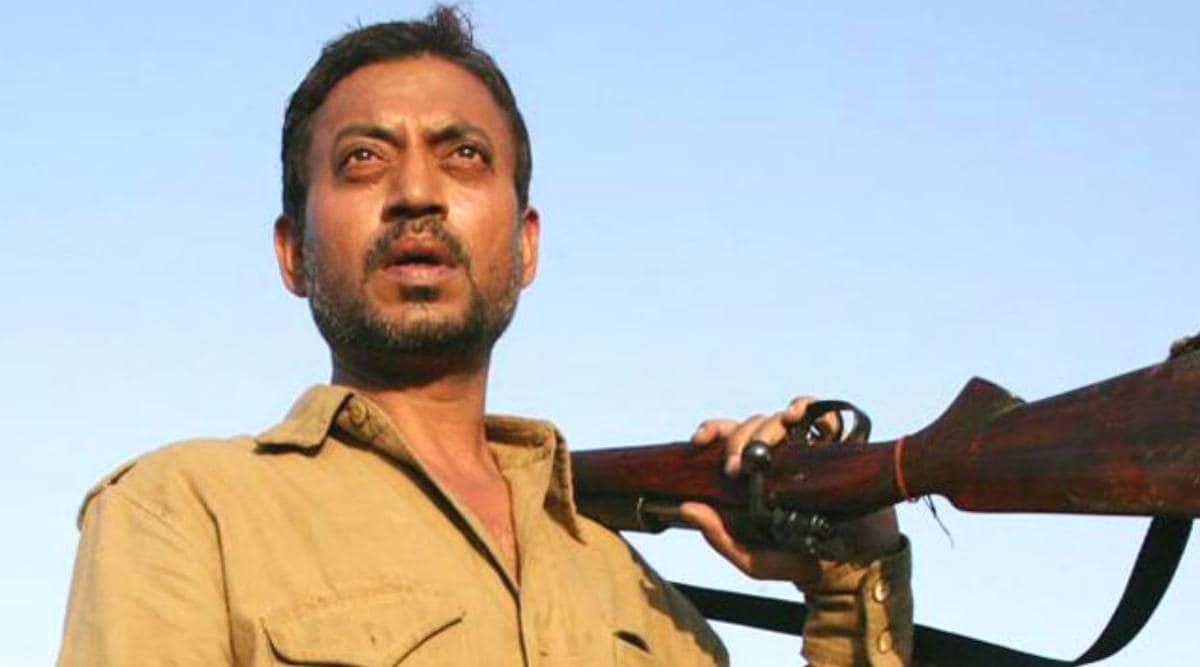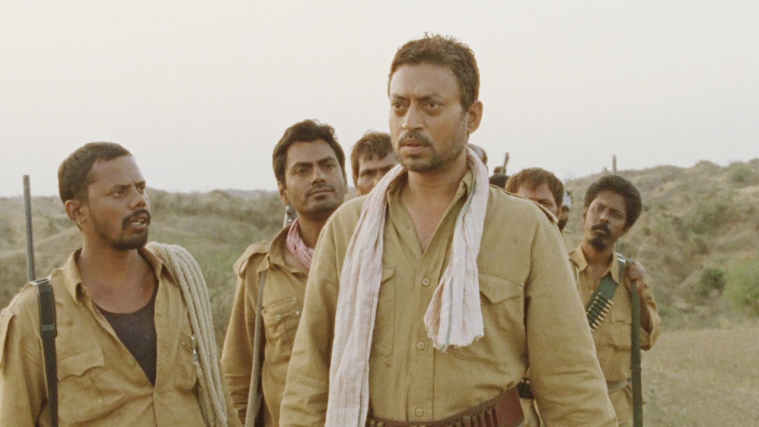 On Irrfan Khan's first death anniversary, revisiting his National Award winning performance in Paan Singh Tomar.
On Irrfan Khan's first death anniversary, revisiting his National Award winning performance in Paan Singh Tomar. The act of watching good movies is often described as an experience but have you ever wondered why? Is it an experience because it made you wiser about your own life or is it an experience because you learnt something new, understood something at an intrinsic level? There’s no one right answer to this question but experiencing movies somehow enriches our life and on Irrfan’s first death anniversary, we went back to revisit the experience of Paan Singh Tomar, a film so commanding in its presence that it is almost impossible to snap out of it midway, no matter how many times one has watched it.
That Irrfan was an artiste par excellence is an established fact, but what he achieved in Tigmanshu Dhulia’s 2012 film was so compelling that even after nine years of the film’s release, the experience of watching him transform from an accidental athlete to an infamous ‘baaghi’ is just as disarming.
 Irrfan plays an athlete in the film who eventually turns to a life of crime.
Irrfan plays an athlete in the film who eventually turns to a life of crime.
At the time when Paan Singh Tomar released in 2012, Irrfan was a significant figure in the Indian film industry, as well as the West. While we were yet to undergo the transformation where the lines between the so-called commercial and subject-driven cinema could get blurred, Irrfan was one of the key figures of this generation who was pushing the envelope in this regard consistently. The success of Paan Singh Tomar, critically as well as commercially, was an added catalyst to the changing perception of Hindi cinema in this era.
But what was it about Paan Singh Tomar that worked? It is a biographical film that tells the story of a man who calls himself a ‘baaghi’, not a dacoit, and is well aware of the ills of his business. A naïve man, who just wants to eat to his heart’s content, signs up for sports in the Army and accidentally finds his talent in steeplechase. While the film is clearly divided into two segments of Paan’s life – athlete and gang leader, the film doesn’t emotionally manipulate you into rooting for him when he turns in his shoes for guns. It was this fine path treaded by writers Sanjay Chouhan and Dhulia that made the audience appreciate Irrfan’s Paan for who he was. He wasn’t the archetypal hero, but he was the character who was well aware of the errors of his ways.
The interview scene with Brijendara Kala, which pieces together the flashback portion, is enough to suggest Paan’s anger and frustration at the society that never respected him for his medals but enjoys glorifying his escapades as a ‘baaghi’. His dialogue ‘Beehad mein baaghi hote hain, dacait milte hain parliament mein (Baaghis are found in ravines, dacoits are found in Parliament)’ voices his helplessness in front of the system that forced him to take matters in his own hands when the system failed him.
The character, who eventually starts dealing in criminal activity, was never a believer of the system and it becomes evident early on when Tomar almost rats out a senior officer in front of his boss. Irrfan plays him as a do-gooder who will change his sport for the love of his mentor but still has the authority to call him out when he finds his behaviour offensive. He is strong and decisive but doesn’t really switch on that side of his personality unless it is essential.
Irrfan was the actor who could pull off being anyone on the silver screen and more often than not, he mesmerised the audience with his enchanting eyes that conveyed his character’s feelings in a glimpse. The end of Paan Singh Tomar, where the lead character is involved in a shootout with the cops, focuses on Irrfan’s face as he is trying to escape. As he looks up at the sky that is being shot up with flares, Paan Singh knows that the game is over and as he inches towards his death, the audience is left thinking about the athlete who galloped like a horse and could have had a peaceful life had the system stood by his side. It’s a feeling of disappointment, not in the man, but the system.
Paan Singh Tomar was one of the key films in Irrfan’s glorious career. In his short life, Irrfan gave us many gifts that we will continue to cherish but the gift of this National Award winning performance will continue to create its magic for generations to come.
- The Indian Express website has been rated GREEN for its credibility and trustworthiness by Newsguard, a global service that rates news sources for their journalistic standards.

